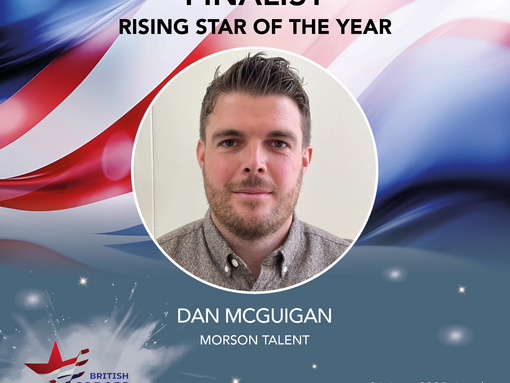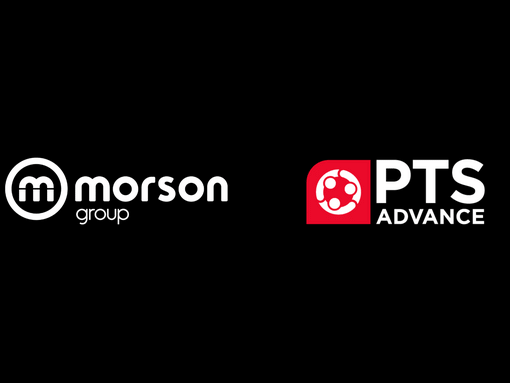
Is graduate and early career recruitment the answer to current commercial pressure and future skills needs?

Whether you’re in a sector that has thrived, or one that’s suffered, it has been a challenging year. And one of the biggest challenges for many in the HR sphere has been establishing a clear picture of what skills they will need within their business; not just now, but in the medium and long-term too.
While some companies have put a freeze on recruitment, others have been much more strategic in their thinking and tackled the dilemma of reduced budgets and agile future skill needs with increased pragmatism.
The key factor HR Managers and Directors in these organisations have in common is a focus on prioritising graduate and early careers recruitment during the pandemic. It’s a strategy that creates an opportunity for a demographic that has been particularly hard hit by the fall-out from COVID-19. It also mines a diverse pool of talent and has the potential to nurture loyalty that will deliver future commercial advantage, while reducing recruitment need and plugging skills gaps.
Generation COVID
According to research highlighted by the BBC Panorama programme, people aged 16-25 are more than twice as likely to have lost their job as a result of the pandemic, while six out of every 10 in this age group still in employment have experienced a drop in their earnings. As a result, talented graduates and experienced young people are struggling to find work, often competing against hundreds of others for minimum wage jobs.
Meanwhile, many employers are competing for talent for roles that they urgently need to fill, often paying double the salary they would need to spend to recruit a graduate. Moreover, they may be paying a premium in order to secure a candidate that, while more qualified and experienced, is unlikely to be so malleable to the company’s requirements or its culture.
It is easy to see how perfectly graduate and early career recruitment fits into that landscape of increased available young talent; evolving future skills needs and a challenging commercial environment. And yet, some employers remain resistant to adopting this strategy, particularly in the SME sector. So, what are the obstacles to this forward-focused approach?
Investing in talent for the long term
One of the most regularly cited obstacles to graduate and early career recruitment is that the new worker will not be ready to ‘hit the ground running’ from day one. While this is often true, the reverse angle to lack of experience is that young candidates will not bring pre-established work practices or cultures to the company either.
Expecting 100% efficiency from any new worker from the minute they arrive is a false expectation, whether they are experienced or not. But the need to nurture skills and build efficiency over time does have to be factored into any graduate or early-career recruitment strategy. New recruits will need to be mentored and exposed to environments where they can gain knowledge, skills and experience, which requires the input of the Hiring Manager in both establishing a clear development plan and working closely with the departments that will facilitate it.
Larger organisations that have embedded a graduate and early career recruitment policy in their HR strategy know that in each cohort of young recruits, there may only be around 60% that develop a long-term career with the company. But within 12-18 months of their start date that 60% will be skilled, loyal, and culturally aligned to the goals and character of the company. Recruiting these candidates is an investment in bringing on board people who will know the organisation inside out and shape its future.
By structuring the training and personnel development path of these individuals, HR professionals can use them as a resource to plug skills gaps throughout the business. In this way, they can overcome the operational challenges and expense of hunting for the right off-the-shelf fit of ready-made experience and opt instead for a bespoke, tailored worker, which, in the future, will enable them to recruit from within their existing talent pool.
Of course, larger organisations can hire graduates and early career recruits in volume, knowing that there will be a drop-off. In these environments there are often dedicated early careers teams to support, coach and develop each cohort, working with departments and managers across the business to ensure each recruit has a structured learning plan that focuses on long-term skill development.
For SMEs, bringing fledgling talent into the business may be riskier and more difficult to manage. Here too, however, it can provide significant benefits. All the same advantages of tailor-made skills, cultural fit, loyalty and ambition to succeed are just as applicable to the SME sector. The cost benefits are exponentially attractive too. For SME companies, recruiting a highly skilled, qualified and experienced person to fit a particular role may be cost-prohibitive, but finding a talented and motivated graduate can give them a valuable resource to mould into the person they need for a £20k salary. And by the time this rises to £28K at the end of year two, they have already achieved the person specification they set out to find. Moreover, many graduates and apprentices will remain with the company for 10 - 15 years, reducing future recruitment need and expense.
Leveraging an employer brand
Of course, the advantages that larger organisations can leverage in order to recruit, train and manage candidates at volume not only include resource, but also brand. Many of the household names that are known as big entry-level recruiters invest significant time on marketing and branding to ensure young people see them as an attractive employer that will offer opportunity and investment. In particular, significant emphasis is placed on attracting candidates from hard to reach groups, which is a key target for many specialist sectors such as engineering.
SMEs may not be able to compete with the level of investment these organisations plough into targeting schools, colleges and universities. They can, however, engage with education on a local level and demonstrate to candidates that they will nurture talent and offer scope for career development. The opportunity to make a big difference in a smaller organisation can be very attractive to someone starting out on their career.
Mapping the future
As a recruitment professional who has, myself, benefitted from being accepted onto a graduate programme when I left university, I know first-hand just how beneficial graduate and early career recruitment can be for both young people and the companies that employ them. From SMEs to big multi-nationals, recruiting goal-oriented, malleable young talent is an excellent strategy for developing the future skills of an organisation and identifying future leaders.
Mapping a route to a successful future with a people plan anchored in tailoring the right skills and mindset for your organisation is, surely, a winning strategy.















